I’m writing this in my bed. Given the current environment, it’s likely you’re reading it the same way. The ability to work remotely used to be seen as a way to increase productivity, improve morale and boost retention. Now it’s a means of survival, and sadly, one that’s hard to universalise.
Over the last few decades, technology and globalism have gone into overdrive. We’re learning the hard way that a society thriving on globalisation is a double-edged sword; more interconnectivity means more interdependency, more interdependence means the dominoes tumble exponentially faster when crisis strikes. We pressed the fast-forward button on the journey to connectivity. Now, we see how difficult it is to press pause.
When Boris Johnson echoed the actions of other world leaders and put the UK into lockdown, he all but confirmed the death of thousands of businesses. Hundreds of thousands have been made redundant and millions more are clinging on to their jobs by way of the furlough scheme.
Despite the resurgence of the virus and reentry into lockdown, the initial panic has wavered into a matter-of-fact stoicism. Walk outside right now, in most UK cities, and you wouldn’t actually notice that much difference — people are out and cafes are pushing flat whites, while cars assemble on dual carriageways (nature is no longer healing).
People are doing what people have always done best: adapt. Founders too: many of those in our immediate network and beyond are seeing covid’s unprecedented challenges as an opportunity — a chance to reinvent and survive, awful odds be damned.
Many have seen it as an opportunity to look the god of death in the eyes and say, “Not today.”
So, how can you follow suit and innovate your way out of this? The first step is the same as any other innovation exercise: look around and see how your landscape is changing.
The new world

In consumer land, matters aren’t as catastrophic as they first appear. Brick and mortar stores are reeling, but that’s mostly because people have changed the way they spend, rather than how much.
It’s also because, despite its impending conclusion, the furlough scheme means people haven’t actually experienced the drastic drops in income seen in other crises like 2008.
Besides, interest rates are at historic lows, so there isn’t much point in saving your money — the dominant mantra right now is “spend it or lose it.” But where are we spending it?
Online, of course. Ecommerce is booming, with global sales expected to reach $4.2 trillion by the end of the year. That new desk chair you always wanted? Those plants you were dreaming of? With less money being spent on things like travel, and Sunak’s magic money tree in full flow, people have been happy to indulge themselves every now and again.
And ecommerce is just a fragment of the digital boom. Platforms like Zoom and Houseparty answered our need to connect while stuck indoors, helping businesses stay productive and friends stay social. Disney+ launched its UK service on the 24th March, a day after the Prime Minister’s order to stay at home. As the new kid on the block, and with everyone scampering for new sources of entertainment, it benefited from a 43% increase in searches and delivered one of the most successful digital launches of all time.
It’s not as simple as digital = profitable however. Viewing figures at Netflix & co have skyrocketed, but are they translating to profit? These services make their money from subscriptions, meaning viewerships can double, even triple, without necessarily leading to any increased revenue or profit. What’s more is they could actually see revenue drop; if consumer confidence falls away, viewers may start reconsidering their financial commitments. Or start sharing passwords with friends (c’mon, we’re all guilty of this).
As Zoom proves, the shift to online is also the big story in the b2b market. Companies have been working around the clock to move online, using video conferencing software to chat with partners, clients, and their own staff, and we can imagine this trend continuing. Moving operations online hasn’t just meant a safer workspace either: businesses are finding it’s easier to organise meetings, it’s cheaper than travelling to other offices, and more effective overall for collaboration and presentations.
Even trade shows, conferences and networking events, so often the heartbeat of the b2b sales cycle, are still going strong, having been reinvented as online experiences.
For obvious reasons, it wouldn’t be right to label any businesses as winners of this pandemic. Those that appear to benefit at first still have uncertain times ahead of them. The landscape will continue to shift and, from coronavirus to Brexit, no one knows what the future might hold. But, as a startup, there are a number of cards in your hand that will uniquely equip you to survive this time of crisis.
Strength in (lack of) numbers

SMEs have an advantage over their more established counterparts: They’re agile.
Where large companies are falling over trying to change in line with the times, small businesses are more able to adjust their processes on the fly and be ready for the new status quo. Unlike incumbents, startups are less likely to be committed to legacy services, products, processes and partnerships that no longer work.
This means they can take advantage of public focus — and provide quickfire solutions to public problems. Take Screen, Trello, or 1Password. All of these have offered their services for free during the crisis. Not only is this, for want of a better word, the right thing to do, it’s also secured them write-ups in places like ProductHunt, ZDnet and the New York Times, massively expanding their audience.
And, even though investors are getting more selective, plenty of money is available right now for new founders. This is because, in a crisis, it makes more sense for VCs to target a cheaper, longer-term investment that will mature once the market returns to normal in a few years time.
The money they would normally spend on Series B and Series C rounds dries up — who wants to pay a ton of money for a stake in a startup that was validated in a pre-covid world? With their expenses and extravagance, who wants to risk pouring money into a late-stage startup?
Money will likely be distributed in a similar fashion as during the Great Recession, where the volume and value of seed funds remained the same or grew. This meant startups that only needed a seed fund or a Series A found it easier to survive the downturn. Those that needed a Series B or C round were those that had a hard time.
The smaller you are in a crisis, the more likely you are to secure funding.
Panic prevention

危机
When written in Chinese, the word crisis is composed of two characters. One represents danger and the other represents opportunity.
John F Kennedy… Kinda.
This isn’t actually true, and he didn’t say it, but who lets facts get in the way of a good quote? The sentiment it embodies represents the spirit of the entrepreneur; a resilient individual who is skilled in the art of uncovering hidden opportunity. Despite the skeptical investment environment caused by the worst market crash since 1987, most of the entrepreneurs we work with are looking up. It’s their job to keep calm in crisis, and they’re good at it.
One of the reasons good entrepreneurs scare less easily is because they know the true value of their company. Economists and investors may focus on tangible metrics like assets, revenue and profits, but it is often the intangibles that make the difference; the camaraderie of employees who’ve become family, the calm and collected minds that come together to helm the ship, the company-wide vision. If there’s anything businesses can fall back on, it’s these. Entrepreneurs take stock of their real assets every day, and use them to innovate when times are tough.
Doing so is nothing new; the ability to innovate during a crisis has been a driving force of our economy for quite some time. The SARS pandemic of 2002-2004 fuelled anxiety around traveling and human contact, similar to Covid-19. The opportunity it created? Ali Baba. It helped catalyse the meteoric growth of the then-small ecommerce company and established it at the forefront of retail in Asia. Similarly, the financial crisis of 2008 produced its own disruptive side effects, namely lower average income, and reduced savings. This forced people to share assets like spare rooms and car rides. The opportunity? Airbnb and Uber, literally the template for a modern unicorn startup.
2020’s disruption will take a lot of people with it, but it will also birth a wave of innovation and act as a catalyst for new industries. Existing companies are already thinking on their feet, with Airbnb leading the line by remodelling Airbnb Experiences to accommodate the global lockdown and keep it connected to its community of travellers and hosts.
One area that’s already growing is cybersecurity. Once a ‘nice to have,’ it’s now recognised by most as an essential part of business.
With criminals taking advantage of increased online activity driven by social distancing, the total volume of phishing emails and security threats relating to coronavirus now represents the largest coalescing of cyber attacks ever. That’s certainly a crisis, and innovators are stepping up to the plate to tackle it. One company we’re working with, CyberSmart, is already seeing unbelievable growth in this area. Like many others in the field, they’ve been able to pivot their business model to focus on a new and increased emphasis on ease and accessibility.
Elsewhere, startups like Capslock are hoping to use an open education model to solve the cyber skills gap and reskilling emergency in one fell swoop. And, as the world battles the spread of coronavirus, more than 400 cybersecurity experts have joined forces to prevent cyberattacks on hospitals and essential services.
Ethical innovation

This is one of the most positive trends to come out of the present crisis. Companies from all industries are coming together to help.
Spiffy, a US on-demand car cleaning service, has rolled out a service to sanitise facilities and properties. Dyson created a portable ventilator to support the NHS with medical equipment. Brompton Bicycles are thinking on their feet bikes and providing 200 bicycles to hire, free of charge, to NHS key workers. Phone companies are pulling together and making it easier for people to connect with their loved ones, with EE providing unlimited data to NHS workers. Companies of all sizes are doing inspirational things and providing innovative solutions, fighting together and using the opportunity to come out stronger.
Small businesses are also stepping up to fill the charity donation gap caused by lockdown. Fundraising events such as the London Marathon, which can bring in up to 60% of a non-profit’s targeted budget, have been largely cancelled. To one charity we spoke to, this was a “guaranteed £120,000” they’d budgeted for, which was now gone. And with demand for charitable services increasing, these organisations need our help now more than ever. But with companies like Salt and Pepper’s, a food caterer based in Hatton Park, giving 10% of their profits to local charities, the outlook is that little bit brighter.
It’s not just altruism — being seen to help is essential in times of crisis. For small businesses, challenger brands and charities alike, it could be the difference between life and death.
So what should you do?

Honestly, that depends on your situation. Are you experiencing a digital boom that you need to capitalise on without increasing your exposure? Are you struggling to keep afloat while your in-person business is nonexistent? Are you trying to secure funding for your idea and wondering how this affects your chances? There’s no one-size fits all answer, but below is the model we recommend you use to work out yours.
- Take stock of what you’ve got. Not potentials, not promises. What do you actually have? Remember, being able to redeploy and repurpose resources quickly is an SME’s secret weapon.
- Keep informed. Listen to your market, your competitors. What do people want, what do people need? Can you partner with someone to deliver something new? Everyone is looking for opportunity. People will be more collaborative than ever.
- Think how you can help. This is for two reasons. One, it’s the right thing to do, and that’s important. Two, it’s the right thing to do, and people will remember you for it. We’ve mentioned a dozen companies in this article alone, all of which are offering something for free to help.
- Don’t panic. Douglas Adams said it best. There is a way out of this, even if it means change. Keep calm, but don’t carry on. Keep calm and look at what needs to change in this new, unprecedented environment.
Covid19 has gone from shutting down a small fish market in Wuhan to stopping the world spinning. The shit has fully hit the fan.
It’s claimed the lives of millions and the livelihoods of many more, infecting every government with panic, every mind with anxiety and every business with uncertainty. In order to survive, we’ve had to hit rewind and disconnect, applying a 20th century remedy to a 21st century world.
With vaccines on the horizon our lives may soon go back to normal. But the upheaval that has taken place in 2020 can never be put back in the bottle; on a fundamental level, the human world has changed.
Just like many startups, we at Outfly have seen our lives radically transform. We’re lucky enough to be able to work remotely and even luckier to be working with inspiring entrepreneurs and innovators who are finding their way through the unprecedented times. From what we’ve seen them achieve, we know for sure that the hope and spirit of innovation remains alive and well.










